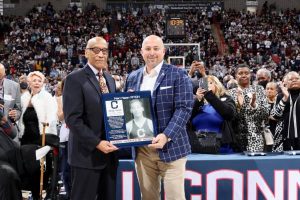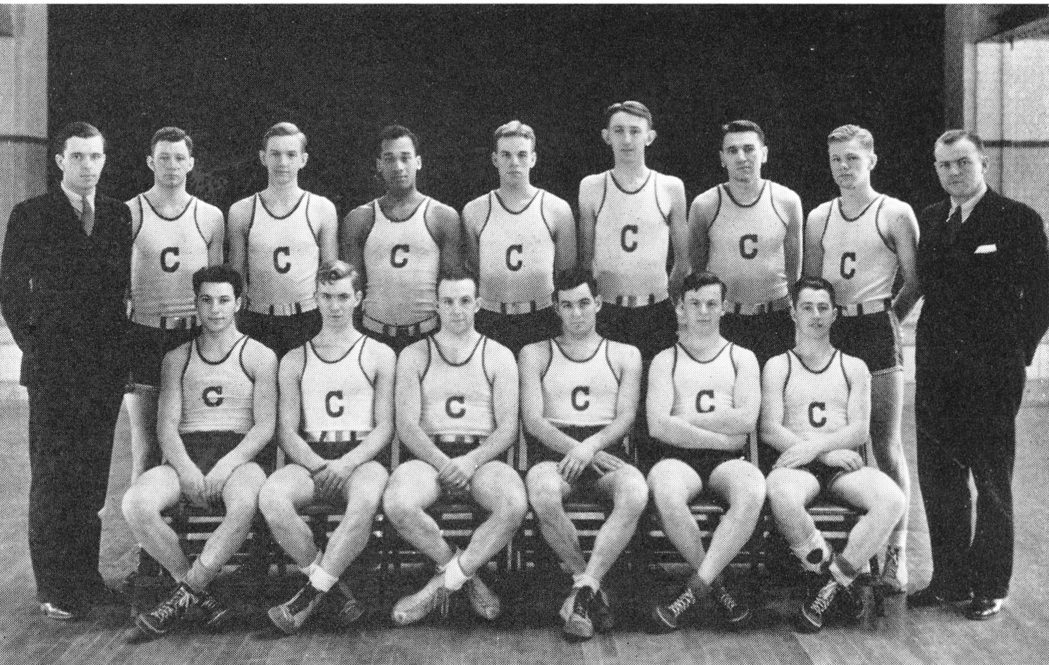Jalen Allen ’25 (CLAS) and Noah Sneed ’25 (CAHNR) have big plans for their lives post-graduation. Allen wants to travel before entering the public relations industry. Sneed will apply to medical school in hopes of one day creating a vaccine to protect against HIV. These young men were already well on their way toward promising futures when fellowship support from the Harrison Fitch Leadership Fund gave them an extra boost.
Harrison Brooks Fitch, Jr. ’64 (CLAS) established the fund in 2022 after looking at data illustrating wide achievement gaps for students from underserved communities. The fund supports UConn’s Gladstein Family Human Rights Institute and the Institute for Student Success, and provides fellowships for students who demonstrate leadership qualities and the potential for future success.

“I’ve always thought it was my responsibility to do what I can to share what I have been given,” says Fitch. “I’ve been given some outstanding life experiences and opportunities that have been extraordinary. So, I feel it’s imperative that we have a responsibility to share with the next generation. That’s the driving force.”
Building on a legacy
The Fund honors Fitch’s father, Harrison “Honey” Fitch, who was UConn’s first Black basketball player and persevered in the face of racist abuse from opposing fans. Fitch sees his father as an inspirational role model to those coming up behind him, including Allen and Sneed.
“I was determined I was going to go way beyond that to expose them to some experiences and people that provide aspiration and inspirational modeling for them,” explains Fitch. “People who look like them and who have gone through similar challenges to what they had overcome and let them see that they can achieve greatness.”
Networking with confidence
The Fund’s support and curriculum are tailored to each individual fellow to supplement and enhance the skills they already possess. For Allen, that meant networking opportunities with journalists and the opportunity to present at UConn’s Black Excellence Summit. Sneed, who also participated in the Summit, wanted to improve his confidence and public speaking.
“I have definitely seen my confidence grow,” says Sneed. “Mr. Fitch gave me some advice. First you have to be confident in yourself because you can show other people that you’re confident. That really helped me because I would go up there and worry what people were thinking about me.”
Both Sneed and Allen encourage other students to apply for the Fellowship.
“Don’t be scared of being rejected,” says Allen. “Sometimes things work out for a reason, so never be scared of being rejected and doors will open for you.”
Sneed’s advice sums up the Fellowship’s impact and Honey Fitch’s legacy.
“Switch your mentality from ‘I shouldn’t be here’ to being a trailblazer. Advance so other people can follow, rather than looking at it like it’s scary so you shouldn’t try to do it.”
Donations to the Harrison Fitch Leadership Fund can be made here.



